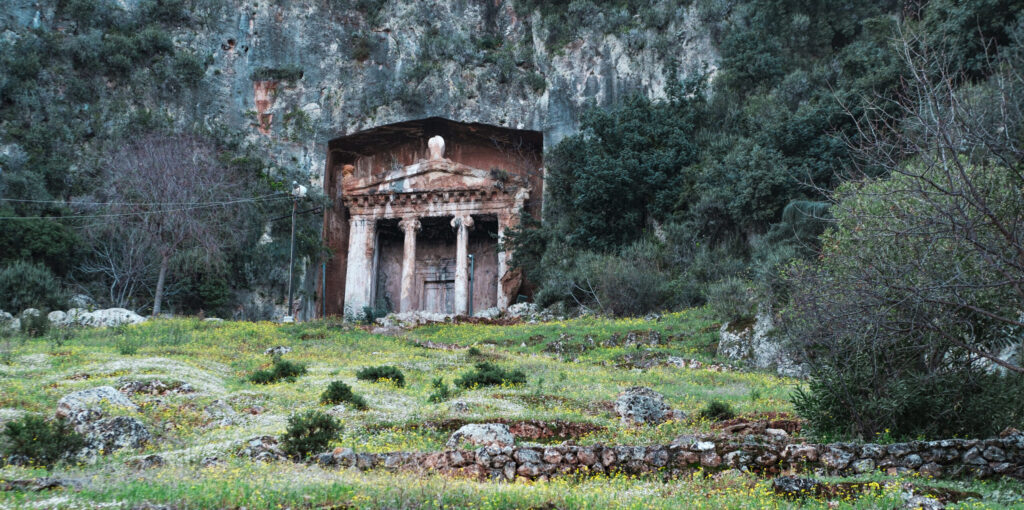
Published June 27, 2023
The following is adapted from the author’s remarks at a panel presented by the Ethics and Public Policy Center.
Francis Maier is right that we are now at a hinge in history—the end of an age and the beginning of something new. Anyone who thinks he or she knows exactly what will emerge next is probably wrong. Whatever is coming next, it will be a very different world from the one we’ve inhabited since World War II. I am quite certain that many things will get worse before they get better. Our societal institutions—governmental, educational, communications, media, medical, public health, etc.—have failed us. The degree of rot in these institutions makes reform or repair, in the short term at least, impractical.
I believe our task is analogous to that undertaken by the Czech dissidents of the Soviet era. Many of us are familiar with Vaclav Havel, who became the first president of the Czech Republic after the fall of Communism and wrote the now classic essay, “The Power of the Powerless.” Maier mentions another Vaclav: a close friend and collaborator of Havel, Vaclav Benda is less well-known but no less important. In contrast to Havel, Benda was a faithful Catholic and remained grounded in his Christian convictions as he faced the challenges of his time and place.
Some readers will doubtless wonder whether the historical analogy to a communist totalitarian regime might not be a bit overblown. Things may be bad, but they surely cannot be that bad. But consider, as Eric Voegelin taught us, that the common feature of all totalitarian systems is neither concentration camps, nor secret police, nor mass surveillance—as horrifying as all these are. The common feature of all totalitarian systems is the prohibition of questions: every totalitarian regime first monopolizes what counts as rationality and determines what questions you are allowed to ask.
At the risk of offending my audience I will suggest: if you don’t see that precisely this is happening on an unprecedented scale globally, you have not been paying close attention. If you still remain skeptical, consider Polish philosopher Leszek Kolakowski’s brilliant formulation to describe the totalitarian method of imposing unity on an entire population: perfect integration through perfect fragmentation. Mull over this phrase while you watch T.V. or scroll social media: perfect integration through perfect fragmentation.
In the Czech context of the 1970s and 1980s, as Professor F. Flagg Taylor writes, “[Vaclav] Benda saw that the Communist regime either sought to infiltrate and co-opt independent social structures for its own purposes, or to de-legitimate and destroy them. It sought to maintain a populace of isolated individuals without any habits or desires for association.” In other words, as he put it, the Iron Curtain had not just descended between East and West, but between one individual and another, or even between an individual’s own body and his soul.
Benda recognized that any hopes for the regime’s fundamental reform or even moderation were futile. It was time to ignore the regime’s official structures and build new ones where human community could be rediscovered and human life could be lived decently. Benda proposed building new small-scale institutions of civil society—in education and family, in productivity and market exchange, in media and communications, literature and the arts, entertainment and culture, and so on—what Benda called “The Parallel Polis” (1978).
He described this idea as follows: “I suggest that we join forces in creating, slowly but surely, parallel structures that are capable, to a limited degree at least, of supplementing the generally beneficial and necessary functions that are missing in the existing structures, and where possible, to use those existing structures, to humanize them.” And he clarified that this strategy “need not lead to a direct conflict with the regime, yet it harbors no illusions that ‘cosmetic changes’ can make any difference.” Benda explained:
In concrete terms this means taking over for the use of the parallel polis every space that the state has temporarily abandoned or which it has never occurred to it to occupy in the first place. It means winning over for the support of common aims…everything alive in society and its culture in the broadest sense of the word. It means winning over anything that has managed somehow to survive the disfavor of the times (e.g., the Church) or that was able, despite unfavorable times, to come into being.
The parallel polis is not, Benda emphasized, a ghetto or an underground; it is not a black-market system hiding in the shadows. As the word polis suggests, the purpose of these institutions was to eventually renew the wider society, not to retreat from it entirely. “The strategic aim of the parallel polis,” Benda wrote, “should be the growth, or the renewal, of civic and political culture—and along with it, an identical structuring of society, creating bonds of responsibility and fellow-feeling.”
Benda acknowledged that every institution of the parallel polis was a David facing the Goliath of a massively powerful totalitarian state. Any one or another of these institutions could be crushed by the state machinery if the state specifically targeted it for liquidation. The task, therefore, was to create so many of these parallel structures and institutions that the corrupt state would finally be limited in its reach: while it could crush any one institution at any time, there would eventually be too many such institutions for the state to target them all simultaneously. Elements of the parallel polis would always survive: as the state crushed one institution, two others would arise elsewhere.
Plan of Action
The parallel polis requires a deliberate strategy: it does not develop automatically. As Benda proposed in his own day, I am convinced it is time to build these new parallel institutions of civil society. We need to be thinking in 50-year increments. This means planting mustard seeds that may not fully germinate in our lifetimes. I suggest that today’s Parallel Polis should be grounded in three principles: Sovereignty, Solidarity, Subsidiarity. I will conclude with five brief points to illustrate the application of these principles in our current moment. (I am simply going to state these points, since time does not allow me to argue for or explain each one.)
First: governments during COVID demanded we become disempowered and isolated. People globally ceded their sovereignty and abandoned social solidarity. By contrast, the new parallel institutions of civil society must return sovereignty to individuals, families, and communities and strengthen social solidarity.
Second: markets, communications, and governing structures have become increasingly centralized at a national and global level, robbing individuals, families, and local communities of legitimate authority, privacy, and freedom. Thus, the new institutions must be grounded in technologies and models of decentralized communications, information sharing, authority, and markets of productivity and exchange.
Third: individuals, families, and local communities especially have been robbed of their legitimate authority and targeted. To rectify this, the new institutions must support the principle of subsidiarity and empower practical efforts at the local level.
Fourth: fear has been weaponized to coerce individuals, families, and communities to cede their sovereignty and even make them forget they once had it. To help individuals, families, and small communities reclaim their sovereignty—their ability to self-govern—we must help people overcome their fear and find their courage.
Fifth, with the rollout of new mechanisms of social surveillance and control—the biosecurity model of governance, biometric digital IDs, Central Bank Digital Currencies, surveillance capitalism, and so on—the temporal window to reclaim solidarity and regain sovereignty is closing fast. Therefore, the time to begin is now.
Aaron Kheriaty MD is the director of the Bioethics and American Democracy Program at the Ethics and Public Policy Center and a senior fellow at the Zephyr Institute.
Aaron Kheriaty, MD, is a Fellow & Director of the Program in Bioethics and American Democracy at the Ethics and Public Policy Center. He is a physician specializing in psychiatry and author of three books, including most recently, The New Abnormal: The Rise of the Biomedical Security State (2022).












